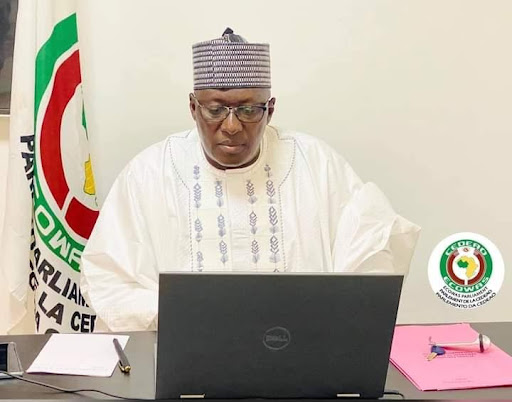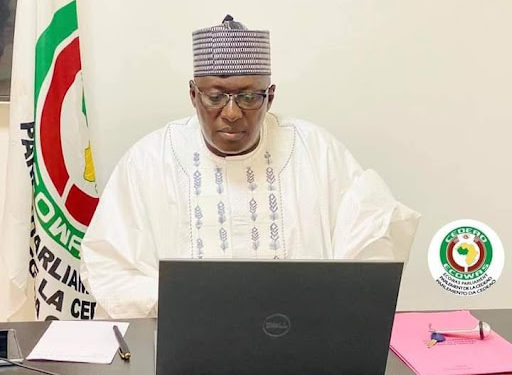
The parliament of the Economic Community of West African States [ECOWAS] on Tuesday kickstarted its second extraordinary summit of the fifth legislature, but MPs from Guinea and Mali are not in attendance.
The two countries’ lawmakers were excluded because of the suspension of their respective countries due to due military coups, officials said.
The summit which is being hosted in the southern Ghanaian town of Winneba, will end on October 15, information from the parliament shows. It is being held on the theme: “Two decades of democratic elections in ECOWAS member states: Achievements, challenges and the way forward.
The ECOWAS parliament is the legislative arm of the sub regional bloc, made of up of 115 members from the houses of representatives in the 15-member countries. It serves as a forum for dialogue, consultation and consensus for representatives of the people of West Africa with the aim of promoting integration.
Established under the revised ECOWAS treaty of 1993, the body, also known as the Community Parliament, was constituted into the first legislature and inaugurated in Bamako, Mali with a five-year mandate on 16 November, 2000. Since then the terms of both the legislature and officials have been reduced to four years.
Each Member State has a minimum of five seats. The remaining 40 seats are shared on the basis of the population of the member states.
The extraordinary session is held in line with the Supplementary Act on the Enhancement of the Powers of the ECOWAS Parliament, which also provides for member countries to host it on a rotational basis.
The first extraordinary summit of this legislature was held in March this year in Freetown, Sierra Leone.
Sierra Leonean MP and current Speaker of the ECOWAS parliament since March 2020, Mohamed Sidi Tunis, was quoted ahead of the Ghana summit saying that he wouldn’t invite MPs from the two countries because of their suspended status.
Tunis spoke after a Ghanaian MP said the two countries had a right to be represented at the summit, citing a previous regional court ruling on Mali.
The court ruling was sparked by a row which broke out after the Malian MPs elected before the August 2020 coup turned up in Freetown claiming to represent the country, while the junta also sent a delegation that claimed to be the legitimate representatives.
Alexander Kwamena Afenyo Markin, leader of the Ghanaian delegation to the ECOWAS parliament, had argued at a press conference in Accra that because the Guinean interim government has six months to conduct election as mandated by the ECOWAS heads of state, they could also appoint a delegation to attend the summit.
But Tunis said the second coup which provoked a fresh sanction by the heads of state annulled that ruling on Mali. And as for Guinea, he noted, the sanctions were fresh and that there was no transition government in place.
“If there is a transitional legislature and government of Guinea accepted by ECOWAS, and they send a delegation to the parliament, then I would accept them; we do not have to even go to court again because the court has already given ruling on that,” he told the Ghana based website, Ghanamps.
Both Guinea and Mali are under pressure by ECOWAS to conduct elections and transfer power to civilians. While the Malians have until February 2022 to do so, the Guineas have only six months, according to a decision taken by the heads of state last month.
In a short statement issued by the office of the Speaker ahead of the summit, it said it is expected to appraise the electoral systems in all member states to identify the challenges and put forward proposals for possible solutions to the various shortcomings observed in the organizations of elections.






















